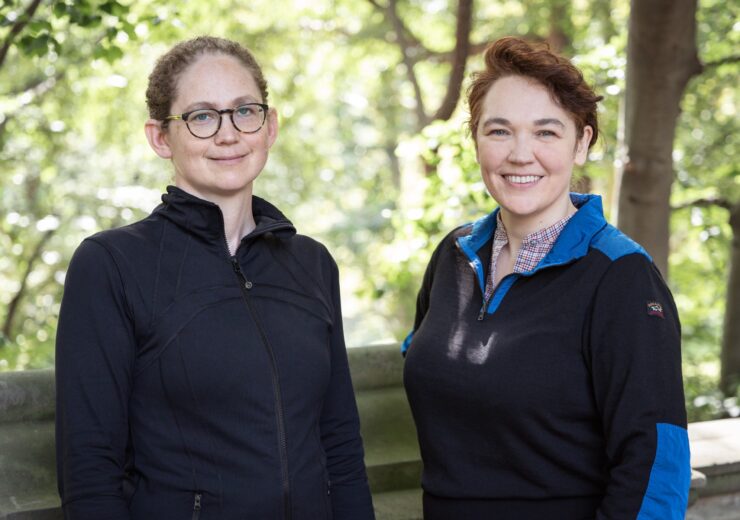Collaboration leverages JURA Bio’s T cell receptor (TCR) discovery platform to discover and develop innovative therapies by applying AI and machine learning

JURA Bio Founders: Julie Norville, Ph.D., Chief Scientific Officer and Elizabeth Wood, Ph.D., Chief Executive Officer. (Credit: Business Wire/ Maki Suzuki)
JURA Bio, a biotechnology company developing immune-based therapeutics using machine learning and synthetic biology, announced today a research collaboration with Syena, a cell therapy product company and subsidiary of Replay, a genome writing company, to develop T cell receptor (TCR) based therapies.
Lachlan MacKinnon, CEO and Co-Founder of Replay, said: “We are delighted to be partnering with JURA Bio, and their innovative team of synthetic and computational biologists to develop highly differentiated TCR-NK cell therapies. This new partnership is an exciting opportunity for Replay’s cell therapy product company Syena to leverage JURA Bio’s powerful toolkit of machine learning and synthetic protein design coupled with their extensive expertise and to use this to advance the development of our engineered TCR-NK cell therapy programs.”
JURA Bio will receive an upfront payment as well as research funding for the period of the partnership. The details of the financial terms of the agreement were not disclosed. If the option is exercised, Replay and its cell therapy product company Syena will be responsible for global development and hold exclusive worldwide commercialization rights on all TCR-NK therapies resulting from the partnership. JURA Bio will be eligible to receive development, regulatory, and commercial milestone payments in addition to tiered deferred option payments on global net sales for products based on TCRs arising from the collaboration, as well as royalties on products utilizing at least one of the licensed technologies.
Replay launched Syena, an oncology-focused product company, with The University of Texas MD Anderson Cancer Center in February 2023. The engineered TCR-NK technology in Syena is based on the scientific discoveries of Katy Rezvani, M.D., Ph.D., professor of Stem Cell Transplantation & Cellular Therapy at MD Anderson.
In addition to the partnership with Replay and Syena, JURA Bio also announced a $16.1M financing led by Michael Chambers, John Ballantyne, Fontus Capital, and Josh Elkington. The funding will accelerate the mapping of the adaptive immune system. JURA Bio’s aims to complete a predictive map of TCR-antigen-HLA binding powered by an off-the-shelf library of >100B synthesized human T cells and their cognate antigens and HLAs by the end of 2024. It will during this timeframe also expand its machine-learning based gene synthesis into the design and discovery of B cell receptors.
Most existing generative machine learning workflows face a fundamental bottleneck in their ability to synthesize and test their candidates of choice. JURA has built an ML-first workflow that incorporates the relevant underlying chemistry, physics, and biology, as well as developing a statistical framework for evaluating model quality that allows them to build and train flexible and reliable models from huge amounts of data. JURA Bio is able to propose, build, and physically assay candidates at a scale previously unimaginable.
JURA Bio’s ML-improved gene synthesis technology has generated an off-the-shelf library of 100 billion potential human and improved TCR candidates that are ready for antigen-specific TCR discovery and development. The company has already discovered high-value TCRs for prostate cancer and other key neoantigen targets that have never been before recorded in key HLA-types.
In another example, JURA has generated a polyclonal candidate pool for six melanoma patients that were refractory to MART-1 specific adoptive cell therapy. Six refractory melanoma patients failed to respond to adoptive transfer of autologous cells from healthy donors. Using an off-the-shelf HLA-matched variational synthesis library of TCR candidates, JURA Bio identified 10 candidates for expansion and engineering to create a truly personalized therapeutic polyclonal candidate pool for each individual. The company has also manufactured peptidome and virodome-scale libraries of antigens to help determine the underlying mechanisms of autoimmunity.
Source: Company Press Release
